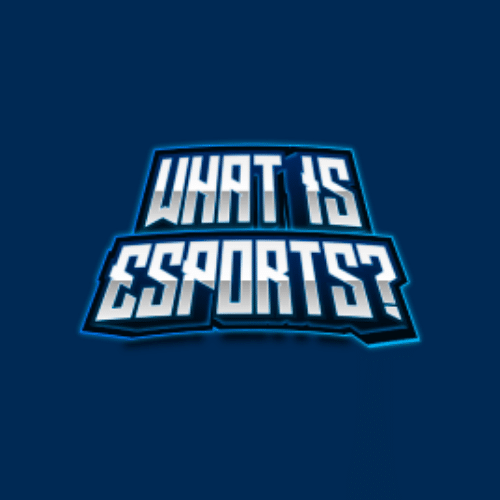Esports Education: How Universities Are Embracing Competitive Gaming

Updated On: November 28, 2025 by 
Are you curious about the burgeoning world of competitive gaming and its impact on academia? We, too, have found ourselves fascinated by this phenomenon. It’s rather enlightening to discover that over 70% of educational institutions now acknowledge the academic potential within esports.
Our investigations have laid bare a trove of exciting methods that universities are employing to integrate the dynamic sphere of esports into their curricula—garnering benefits for students both in terms of their studies and social engagement.
So, come along on this journey with us as we delve into a trend that could well transform our traditional notions of education!
The Rise of Esports in Education
Esports is gaining momentum in the educational landscape, with universities and schools recognising the potential of competitive gaming. It’s not just about fun and games; it’s about tapping into students’ interests and passions to unlock a new realm of learning opportunities.
Unlocking the potential of competitive gaming
We see schools and universities around the world opening up to the exciting realm of esports, recognising its value not just as a form of entertainment, but as an educational tool.
This shift is transforming how we approach learning and skill development. Institutions are creating eSports programmes that dive into the complexities of competitive gaming while integrating technology in ways that prepare students for future careers.
Collegiate tournaments are no longer just about winning or losing; they’re about collaboration, strategic thinking, and leadership—skills crucial both on and off the digital battlefield.
Students actively participating in these competitions gain hands-on experience with team dynamics and decision-making under pressure. This engagement encourages them to explore deeper into STEM fields connected to their passion for gaming.
Moving forward, tapping into students’ interests becomes key to sustained motivation and academic achievement.
Tapping into students’ interests and passions
Esports education taps into students’ interests and passions by providing a platform for them to engage in their favourite competitive gaming activities while honing valuable skills.
It aligns with the broader technology ecosystem, attracting students who are captivated by the digital landscape. As universities recognise the benefits of esports in promoting teamwork, strategic thinking, and leadership skills among students, they are embracing this avenue to keep learners engaged and successful academically.
Embracing esports also allows students to explore potential career paths in the gaming industry, creating a direct link between their passion and future professional opportunities.
Benefits of Embracing Esports in Education
Embracing esports in education offers numerous benefits, fostering important skills such as critical thinking, problem-solving, and decision-making. It also provides opportunities for students to build teamwork and collaboration skills while developing strategic thinking abilities.
Fostering important skills
Esports education cultivates essential skills such as teamwork, communication, and problem-solving. Students participating in competitive gaming learn to collaborate effectively within a team dynamic, refining their ability to strategise and make quick decisions.
Moreover, esports promotes leadership qualities and adaptability, enhancing students’ overall skill set for future academic and professional endeavours.
By engaging in esports activities, students gain practical experience in critical thinking and time management. They develop resilience by learning how to cope with pressure during gameplay while sharpening their analytical abilities.
Building teamwork and collaboration
Fostering important skills sets the stage for building teamwork and collaboration, essential aspects in competitive gaming. As universities embrace esports, students are encouraged to work together, communicate effectively, and strategise as a team.
This not only enhances their gameplay but also cultivates transferable skills that can be applied in various academic and professional settings. Through collegiate tournaments and high school leagues, the ethos of cooperation is instilled, strengthening the foundation of camaraderie among gamers.
Recognising the benefits of working as a cohesive unit, universities are investing in learning frameworks that promote teamwork and collaboration within esports programmes. By integrating technology into educational strategies, institutions are leveraging online gaming platforms to create an environment where students can practice effective teamwork while honing their gaming prowess.
Developing strategic thinking
As we explore the importance of developing strategic thinking, it’s essential to recognise that esports in education are providing students with a platform to hone this critical skill.
Whether planning game strategies or making split-second decisions during gameplay, the competitive gaming environment encourages and demands strategic thinking at its core. With universities embracing esports on campus, students have an opportunity to cultivate their ability to think critically and strategically in fast-paced, dynamic environments.
Universities investing in esports understand the value of strategic thinking as a transferable skill that extends beyond gaming into various aspects of professional and academic life.
Esports and STEM Education
Esports and STEM Education go hand in hand, offering students the opportunity to apply their gaming skills to real-world problem-solving and critical thinking. By integrating esports into STEM education, universities are preparing students for future careers in technology and innovation.
Bridging the gap to future careers
Esports education acts as a bridge to future careers by preparing students for the expanding landscape of competitive gaming. Private colleges and universities are investing in esports, building new programming, and recruiting athletes to meet the growing demand for skilled professionals in the gaming industry.
The recognition of esports’ educational potential and sport legitimacy is opening doors for students to explore career paths relating to technology integration, digital skills enhancement, and strategic thinking development.
As universities embrace esports, they are not only promoting teamwork and leadership but also providing opportunities for students to pursue their passion while preparing them for potential careers in the evolving gaming sector.
Enhancing digital skills
Universities are increasingly recognising the crucial role of esports in enhancing digital skills among students. As gaming continues to gain traction in academia, learners have ample opportunities to develop proficiency in areas such as coding, game design, and data analysis.
This not only aligns with the growing demand for technology-related expertise but also empowers students to explore potential careers within the expanding gaming industry.
The integration of esports into higher education provides a platform for students to expand their knowledge in digital innovation, cybersecurity, and virtual reality. It is equipping them with practical skills that are directly transferable to the modern workforce and preparing them for roles that require adeptness in emerging technologies.
Overcoming Barriers and Challenges
Navigating negative stereotypes and addressing concerns about screen time can be a challenge when integrating esports into education. Providing equitable access and resources for all students is crucial in ensuring that competitive gaming opportunities are available to everyone.
Navigating negative stereotypes
Overcoming negative stereotypes surrounding esports in education can be challenging, but it’s essential for shifting perceptions. Embracing the educational potential of competitive gaming and highlighting the skills it fosters can help dispel misconceptions about esports being solely recreational.
By showcasing the strategic thinking, teamwork, and leadership development opportunities that esports offers, universities can demonstrate its value as a legitimate educational pursuit.
Addressing negative stereotypes requires highlighting how esports aligns with academic and career-related skills. Recognising the benefits of competitive gaming in promoting critical thinking and collaboration is crucial for changing perceptions among educators and parents.
Addressing concerns about screen time
Concerns about excessive screen time are valid, and it’s important to find a healthy balance. However, it’s also essential to recognise that esports can be a positive force in education.
The benefits of gameplay include fostering teamwork, building strategic thinking skills, and even honing leadership abilities. In higher education settings, esports can provide opportunities for students to explore potential career paths within the gaming industry while developing valuable digital skills.
Esports education acknowledges the concerns about screen time but also highlights its educational potential and sport legitimacy. Engaging in competitive gaming can be a way for students to pursue their passion while acquiring meaningful skills that extend beyond the screen.
Providing equitable access and resources
Universities are striving to ensure equitable access and resources for all students interested in esports. This means creating an inclusive environment where both passionate gamers and novice enthusiasts have the opportunity to participate regardless of their background or experience level.
Investing in state-of-the-art gaming facilities, accessible equipment, and mentorship programmes enables universities to level the playing field and support a diverse community of gamers.
Recognising that access to opportunities is key, colleges and universities are actively working to provide fair access by offering scholarships, funding travel expenses for competitions, and organising outreach initiatives to engage underrepresented groups.
Conclusion
In conclusion, embracing esports in higher education can enhance student engagement and foster important skills. Competitive gaming offers students the chance to explore potential career paths and develop teamwork, strategic thinking, and leadership abilities.
The recognition of esports’ educational potential is paving the way for universities to support and promote this growing field. Furthermore, as colleges embrace esports, they are opening doors for students who have a passion for competitive gaming.
This acknowledgement not only legitimates gaming but also creates opportunities for academic success.
FAQs
1. What is Esports education in universities?
Esports education refers to academic programmes and courses that focus on competitive gaming, recognising its value in higher education institutions.
2. Why are schools and universities adding eSports to their curriculum?
Schools and universities are introducing eSports into their curricula to keep up with the growing legitimacy of sport and to offer students new learning opportunities tied to this emerging industry.
3. Can studying esports lead to a career path?
Yes, studying esports can lead directly to various careers within the gaming industry as well as roles related to event organisation, marketing, broadcasting, or game development.
4. How does incorporating eSports benefit students academically?
Incorporating eSports into academia encourages teamwork, strategic thinking, and technological skills among students while aligning with contemporary educational objectives within schools and universities.


